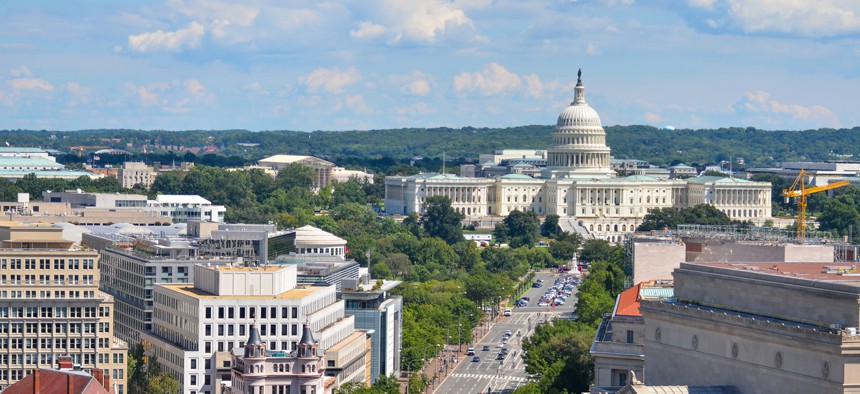This wouldn’t be the first time that an expansion of the social safety net has reshaped people’s views of what the government should provide for them. The legacy of the New Deal of the 1930s, for example, wasn’t just the creation of policies such as Social Security and the minimum wage, but also a heightened sense that the government should guarantee a basic standard of living for all Americans. As a result, despite funding cuts and many efforts to roll back the New Deal, nearly all of the policies that passed during that era are still in existence today.

Orham Cam/Shutterstock.com
The Pandemic Could Change How Americans View Government
Congress’s push to temporarily expand the social safety net may have the country asking one big question: Why only now?
The economic fallout is here. As a result of the coronavirus pandemic, Americans are losing their jobs, watching small businesses around them close up shop, and fretting about their retirement savings. It’s a bleak scenario that has lawmakers scrambling to soften the blow: Yesterday, Congress passed a relief package that temporarily mandates paid sick and family leave for some workers, expands unemployment insurance, and increases funding for food stamps and Medicaid—and that could be only the beginning of the government’s response.
The federal government’s efforts are intended to help Americans get through the short-term tumult of the pandemic, but the long-term effect could be even more consequential: As more Americans see what the government can do for them, they may begin to change their views on the role that it plays in their lives—and not just during a pandemic. In other words, it could give life to the argument, most common on the left, that big government can be, and do, good.






